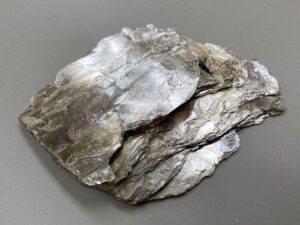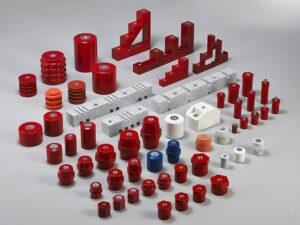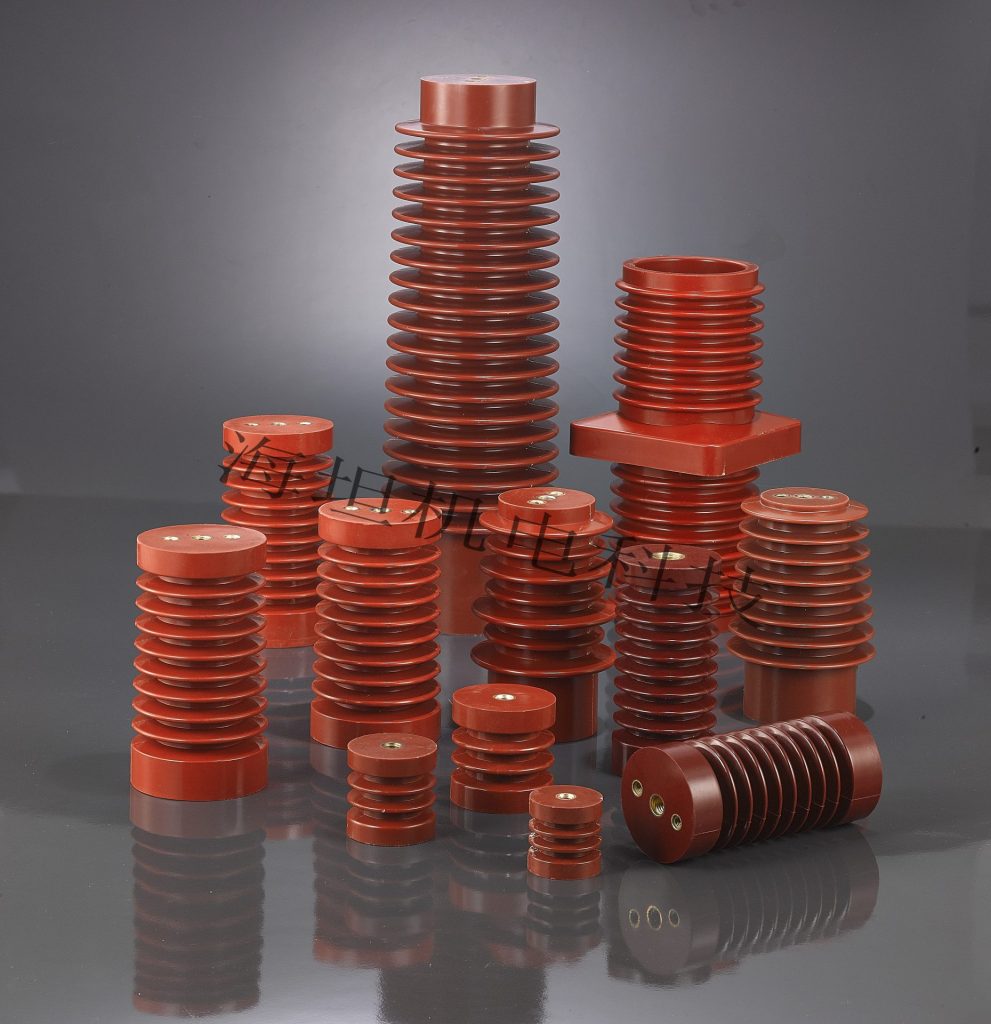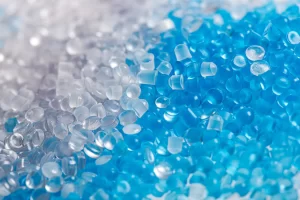Everything You Need to Know About Busbar Insulation Material
1. What is busbar insulation?
Busbar insulation is a protective layer applied to electrical busbars to prevent unintended electrical contact, short circuits, or energy loss. It ensures electrical safety and improves system reliability by isolating conductive surfaces and reducing the risk of shock or arcing.
2. What Material Is Used For Busbar Insulation?
There are many kinds of busbar insulation materials, each material has different properties. The following are several common busbar insulation materials:
2.1 Composite materials
| Material | Main Components | Insulation properties | Mechanical Strength | Heat Resistance (HDT) | Typical Applications |
| DMC | Dough Molding Compound | High | Good | 200~280°C, long-term use at 130°C | Transformers, inductors busbar insulation |
| BMC | Bulk molding compound | High | Good, suitable for complex shapes | 200~280°C, long-term use at 130°C | Distribution cabinets, electrical switches |
| SMC | Sheet molding compound | High | Higher tensile and bending strength | 200~280°C, long-term use at 130°C | Distribution cabinets, electrical switches, large power equipment |
2.2 Thermoplastic and Thermosetting Busbar Insulation Materials
Busbar insulation materials vary in performance depending on temperature resistance, mechanical strength, electrical insulation, and chemical stability. Below is an analysis of commonly used materials to help you choose the most suitable option.
2.2.1 Polycarbonate (PC) – Strong and Transparent
Key Benefits:
High impact resistance, reducing mechanical damage risks.
Good thermal stability, ensuring reliable performance in moderate heat.
Transparent, allowing easy inspection of electrical components.
Best For: Indoor distribution panels and enclosed systems requiring visibility.
2.2.2 Polyvinyl Chloride (PVC) – Cost-Effective and Chemical-Resistant
Key Benefits:
Budget-friendly, making it ideal for cost-sensitive applications.
Chemical-resistant, ensuring durability in industrial settings.
Reliable electrical insulation, preventing current leakage.
Best For: Low-voltage indoor electrical systems and commercial power distribution.
2.2.3 Polytetrafluoroethylene (PTFE) – High-Temperature and Low-Friction
Key Benefits:
Withstands extreme temperatures without degradation.
Non-stick surface, preventing dirt accumulation.
Low dielectric loss, ensuring minimal energy dissipation.
Best For: High-temperature environments such as power plants and industrial heating systems.
2.2.4 Epoxy Resin – Strong Adhesion and High Electrical Insulation
Key Benefits:
Excellent dielectric strength, preventing current leakage.
Strong adhesion, bonding well with various surfaces.
Resistant to moisture and chemicals, prolonging lifespan in harsh environments.
Best For: Substation equipment, transformers, and high-humidity environments.
2.3 Silicone Rubber – Flexible and Weather-Resistant
Silicone rubber is an ideal choice for busbar insulation material due to its unique properties. Its main advantages are:
Key Benefits:
Operates in extreme temperatures (-100°C to 350°C).
Highly flexible, making it easy to install on irregular busbars.
Weatherproof, with strong resistance to UV, ozone, and moisture.
Best For: Outdoor switchgear, substations, and coastal installations.
2.4 Mica – High-Temperature Resistant and Electrically Stable
Mica is an ideal choice for busbar insulation material due to its unique properties. Its main advantages are:
Key Benefits:
Exceptional dielectric strength, preventing electrical failures.
Withstands temperatures over 700°C without degradation.
Chemically stable, resistant to acids and alkalis.
Best For: High-power electrical systems and industrial furnaces.

2.5 Ceramic Materials – Ultra-High Voltage and Heat-Resistant
Ceramic Material is an ideal choice for busbar insulation material due to its unique properties. Its main advantages are:
Key Benefits:
Superior electrical insulation, ideal for high-voltage applications.
Operates effectively above 1000°C without softening.
Highly resistant to oxidation and corrosion, ensuring long service life.
Best For: Power transmission systems and extreme heat environments.
3. What is the best material for a busbar?
The optimal busbar insulation material hinges on the application, environmental factors, and performance criteria. Here’s a concise guide to help you pinpoint the ideal material:
3.1. Industrial & High-Voltage Settings
BMC (Bulk Molding Compound) and SMC (Sheet Molding Compound)
Why: They boast high mechanical strength, superior electrical insulation, and inherent fire resistance.
Use Cases: Ideal for industrial machinery, high-voltage switchgear, and power distribution systems.
3.2. Outdoor Applications
Silicone Rubber
Why: It excels in durability, flexibility, moisture resistance, UV protection, and long-term stability.
Use Cases: Perfect for outdoor electrical installations, substations, power lines, and weather-resistant equipment.
3.3. High-Temperature Environments
Mica and Ceramic
Why: These materials offer outstanding heat resistance and dielectric properties, withstanding extreme temperatures without degradation.
Use Cases: Suitable for high-temperature power distribution, industrial furnaces, and other heat-intensive applications.
3.4. General-Purpose Applications
Epoxy Resin and PVC
Why: They provide a balanced blend of cost efficiency and insulation performance, suitable for low to medium voltage systems.
Use Cases: Commonly used in everyday electrical installations, medium-voltage switchgear, and general equipment.
Quick Reference
Industrial/High-Voltage: BMC/SMC for strength and safety.
Outdoor: Silicone Rubber for durability and weather resistance.
High-Temp: Mica/Ceramic for heat and electrical stability.
General Use: Epoxy/PVC for cost-effective insulation.
4. How to Choose Materials for Your Busbar Insulators?

Choosing the best busbar insulation material for your busbar insulators depends on several factors:
- Budget Constraints: If cost is a major concern, PVC is a cost-effective option for low to medium voltage applications.
- High-Temperature Environments: For extreme heat conditions, PTFE or ceramic materials offer excellent thermal resistance and durability.
- Outdoor & Harsh Weather Conditions: If the insulator will be exposed to moisture, UV, and extreme temperatures, silicone rubber provides superior weather resistance and longevity.
- Low-Voltage Applications: If the system operates at a lower voltage level, epoxy resin or composite materials like SMC and BMC provide a balance of insulation and cost-efficiency.
- Structural Support Needs: If you need a busbar support insulator, materials like BMC and SMC offer high mechanical strength and durability, ensuring stability for busbar systems.
- Corrosion Resistance: In chemically aggressive environments, glass or ceramic insulators provide excellent resistance against corrosion and contamination.
Choosing the right busbar support material ensures your electrical system remains efficient, reliable, and safe for long-term operation.If you are looking for reliable DMC, BMC, or SMC busbar insulators, Haitan Electromechanical Technology Co., Ltd is a trusted provider, offering high-quality solutions designed for durability and electrical safety.
5. Conclusion
Choosing the right busbar insulation material is essential for electrical safety, efficiency, and longevity. Different materials provide unique benefits, from heat resistance to mechanical strength.
For industries requiring high-performance BMC, SMC, or DMC insulators, Haitan Electromechanical Technology Co., Ltd is a trusted supplier of reliable insulation solutions. The right choice ensures long-term stability, cost efficiency, and superior electrical performance.
Would you like assistance in selecting the best busbar Insulation material for your application? Get in touch with us today!
--- END ---
© Copyright 2024 China Haitan Electromechanical Technology Co., Ltd. All rights reserved.SUPPORT BY:JUNJ Privacy Policy


 E-mail:
E-mail:  No. 20 Lingyun Road, Dongfeng
No. 20 Lingyun Road, Dongfeng 
